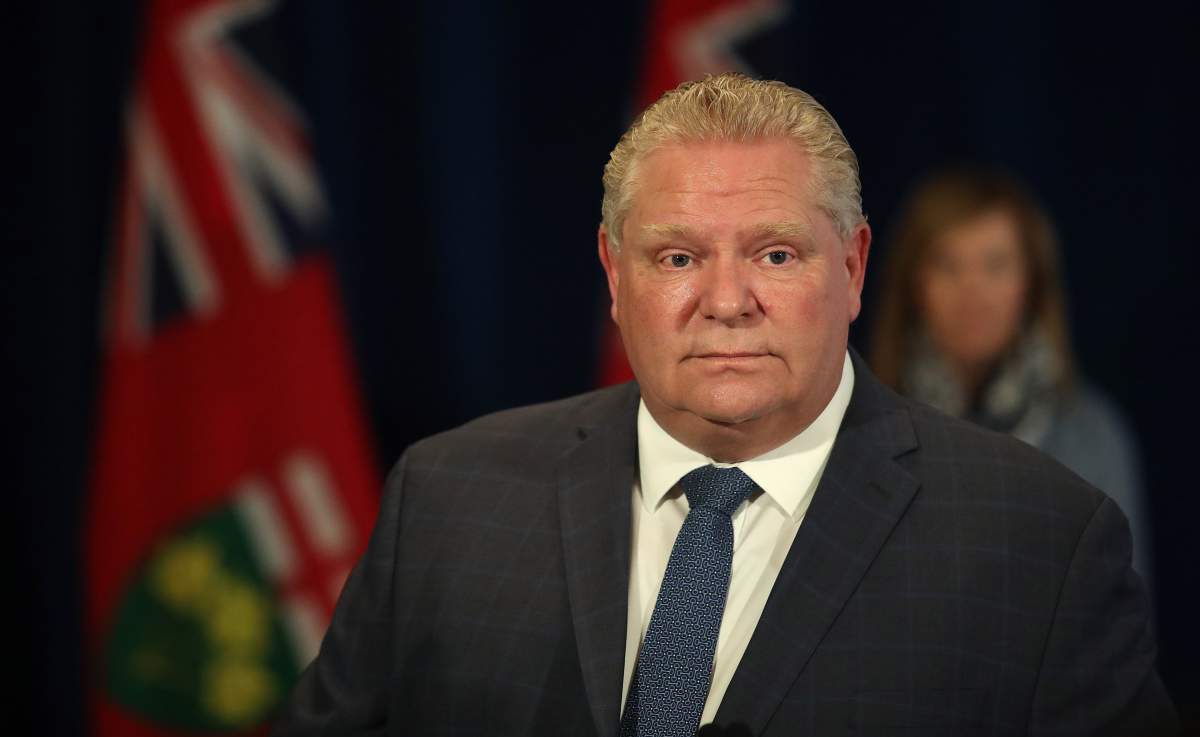Haldimand County’s mayor says he supports Premier Doug Ford’s plan to begin a dialogue with Ontario mayors in a push to allow owners to travel to cottages sometime in late May.

Ken Hewitt told Global News that he’s hopeful cottagers will be able to make trips in and out of the county despite an order from Haldimand-Norfolk County’s medical officer of health specifically prohibiting residents from occupying secondary homes due to the COVID-19 pandemic.
“I’m supportive of cottage owners being able to attend their cottages simply because I don’t believe that, you know, the cottage owners present the same kind of risk as the day-trippers and campers,” said Hewitt.
During his daily COVID-19 update on Tuesday, Ford said he didn’t blame cottage owners for being angry about the medical officer’s order.
“We’re doing pretty good,” said Ford. “And then how do you tell people, that are paying taxes and paying the bills for the vast majority of people there, to stay home? You know, people are co-operating.”
On Monday, Ford said he was hopeful cottagers would be able to make trips to their second homes in late May, should coronavirus case numbers continue to decline.
He went on to say that he would be reaching out Ontario mayors to have a “heart-to-heart” conversation either Wednesday or Thursday this week about the situation.

Get breaking National news
Hewitt said he wasn’t sure whether he would be on that call list having not heard from Ford.
“No, I haven’t heard from the premier’s office or the premier himself with respect to the comments he’s made.”
Hewitt went on to say he believes the calls Ford alluded to were more likely for mayors in regions north of Toronto.
“So I think, you know, drilling down deep into that, probably what he was alluding to was his conference call was going to or he’s going to be doing that with the mayors up north”, Hewitt said.
Haldimand-Norfolk’s medical officer Dr. Shanker Nesathurai signed the order forbidding residents with a second home in either county to occupy their property on April 23. Letters with the order were mailed out to owners on May 1.
The decree is based on Section 22 of the province’s health protection and promotion act, which allows a medical officer to make a written order requiring a person to take or to refrain from taking any action that is specified in the order in respect of a communicable disease.
Hewitt says he doesn’t support the order believing it’s something that would be very difficult for authorities to enforce.
“My reasons for not supporting the order is because I’m not confident that it’s enforceable. It’s our ability to enforce such an order as is, is next to impossible.”
Global News reached out to Dr. Nesathurai’s office in regards to the comments made by Ford and Hewitt but received no response to inquiries as of Tuesday night.
Haldimand-Norfolk reports 196 cases of coronavirus
Haldimand-Norfolk Health Unit (HNHU) reported no new cases on Tuesday and remains at 196 total lab-confirmed COVID-19 cases.
The region’s total number of reported deaths remains at 30.
Fifty-four per cent of the two region’s deaths have been among patients aged 60 plus.
HNHU says 54 people have recovered since the pandemic began.
Questions about COVID-19? Here are some things you need to know:
Health officials caution against all international travel. Returning travellers are legally obligated to self-isolate for 14 days, beginning March 26, in case they develop symptoms and to prevent spreading the virus to others. Some provinces and territories have also implemented additional recommendations or enforcement measures to ensure those returning to the area self-isolate.
Symptoms can include fever, cough and difficulty breathing — very similar to a cold or flu. Some people can develop a more severe illness. People most at risk of this include older adults and people with severe chronic medical conditions like heart, lung or kidney disease. If you develop symptoms, contact public health authorities.
To prevent the virus from spreading, experts recommend frequent handwashing and coughing into your sleeve. They also recommend minimizing contact with others, staying home as much as possible and maintaining a distance of two metres from other people if you go out.
For full COVID-19 coverage from Global News, click here.















Comments